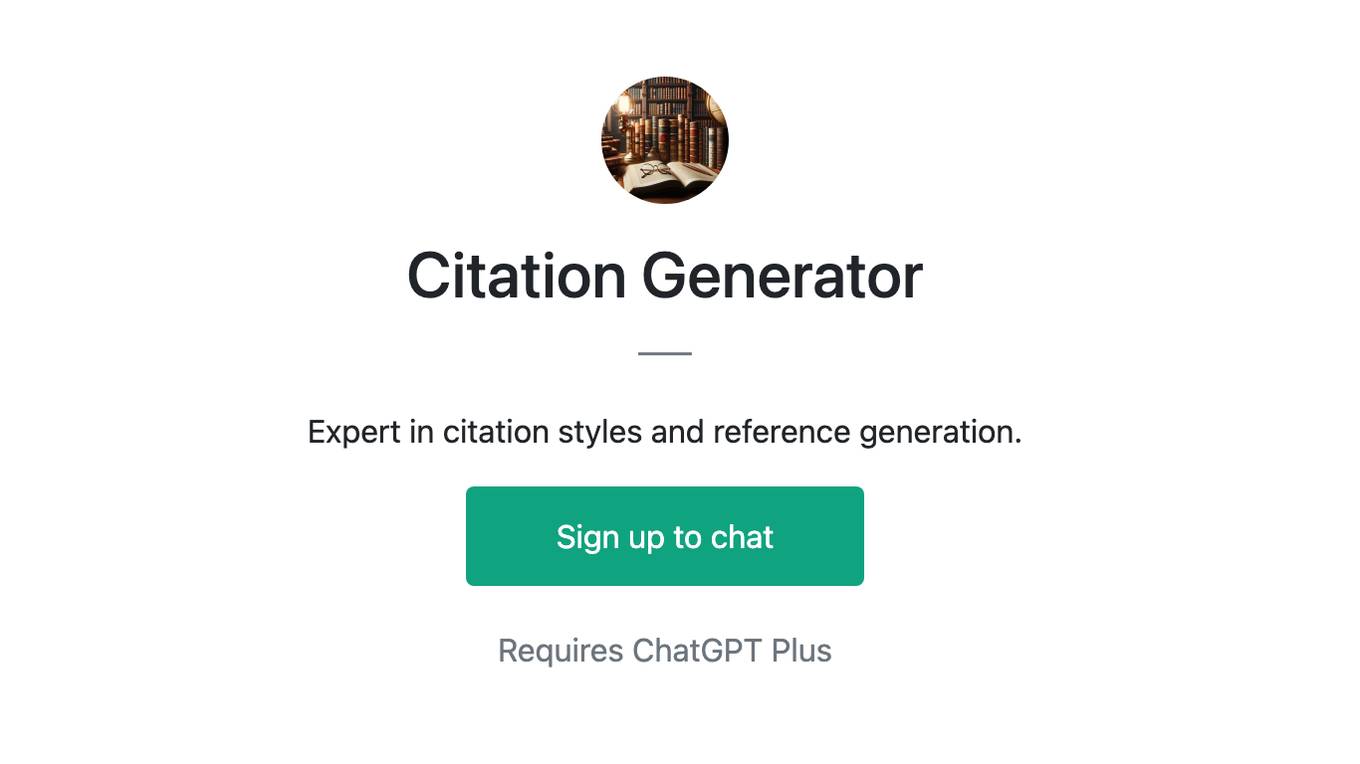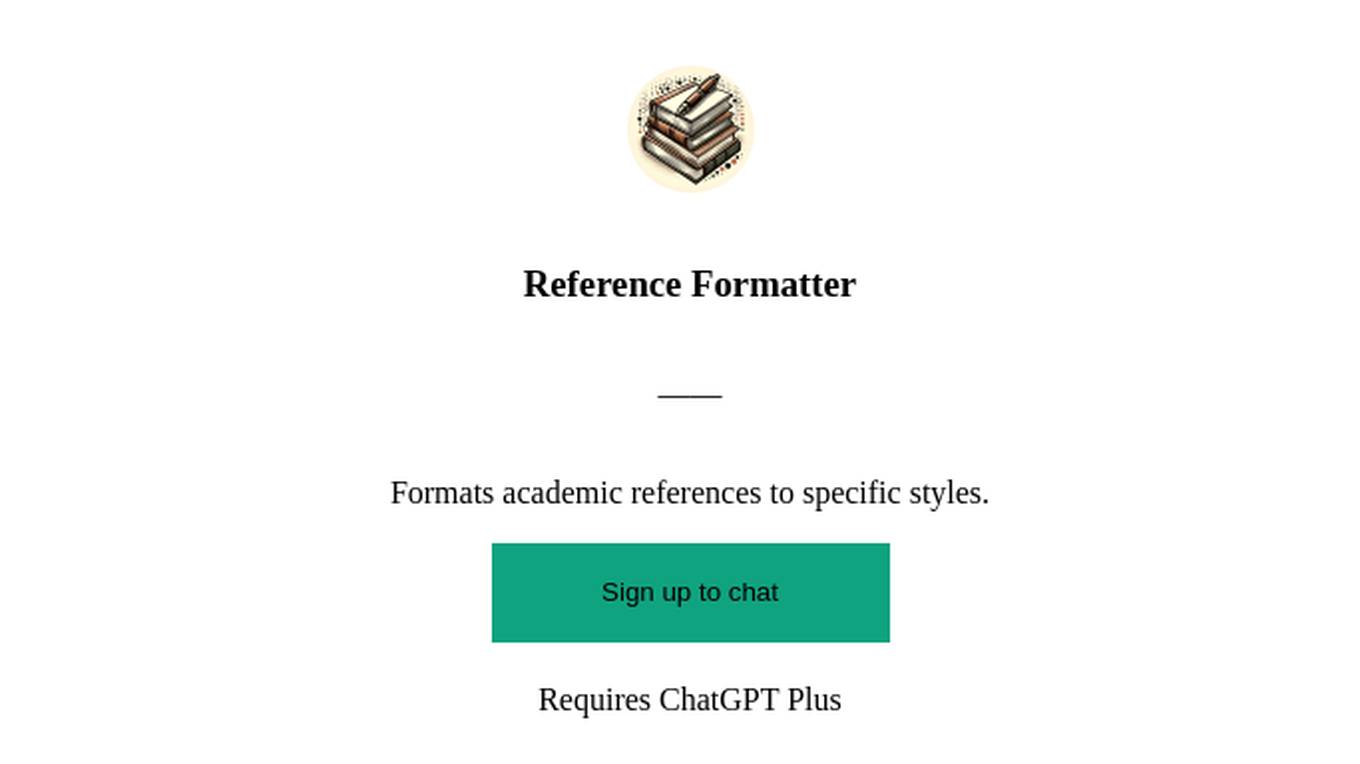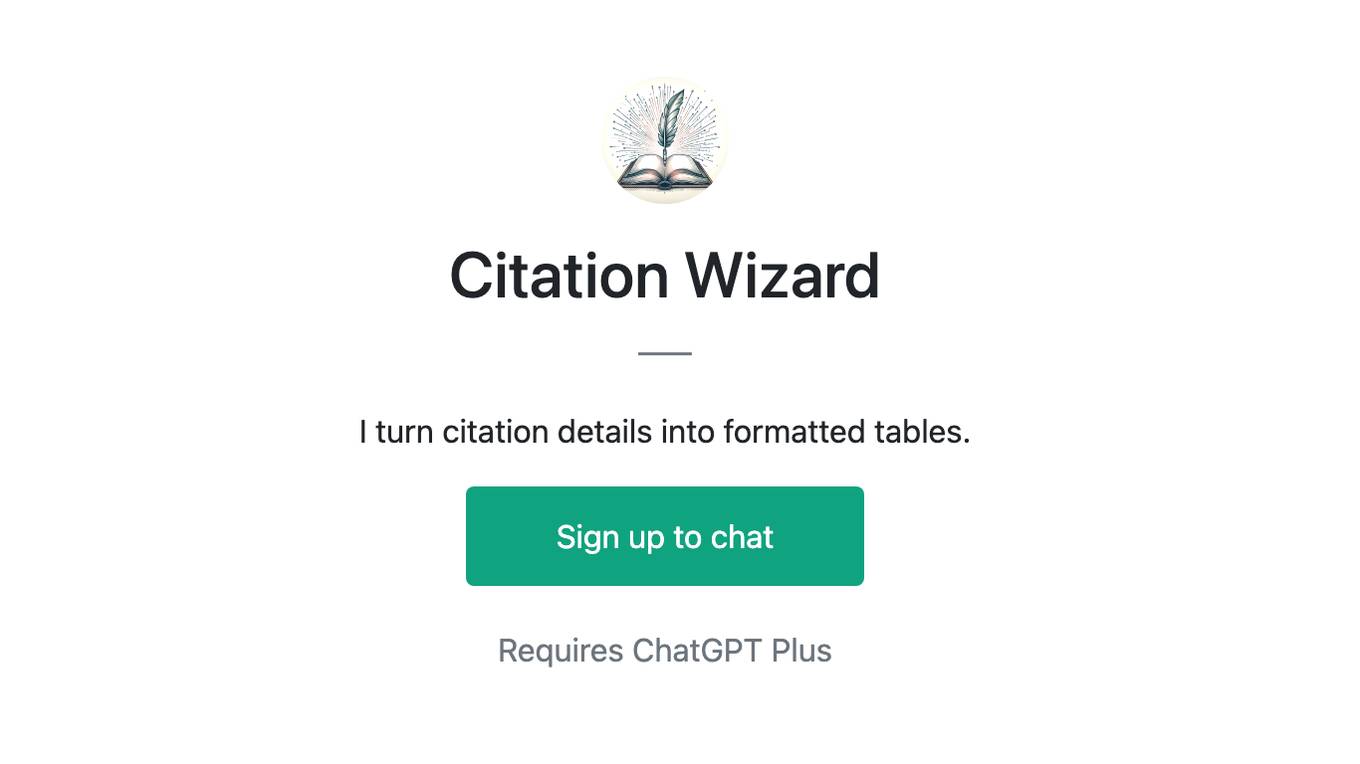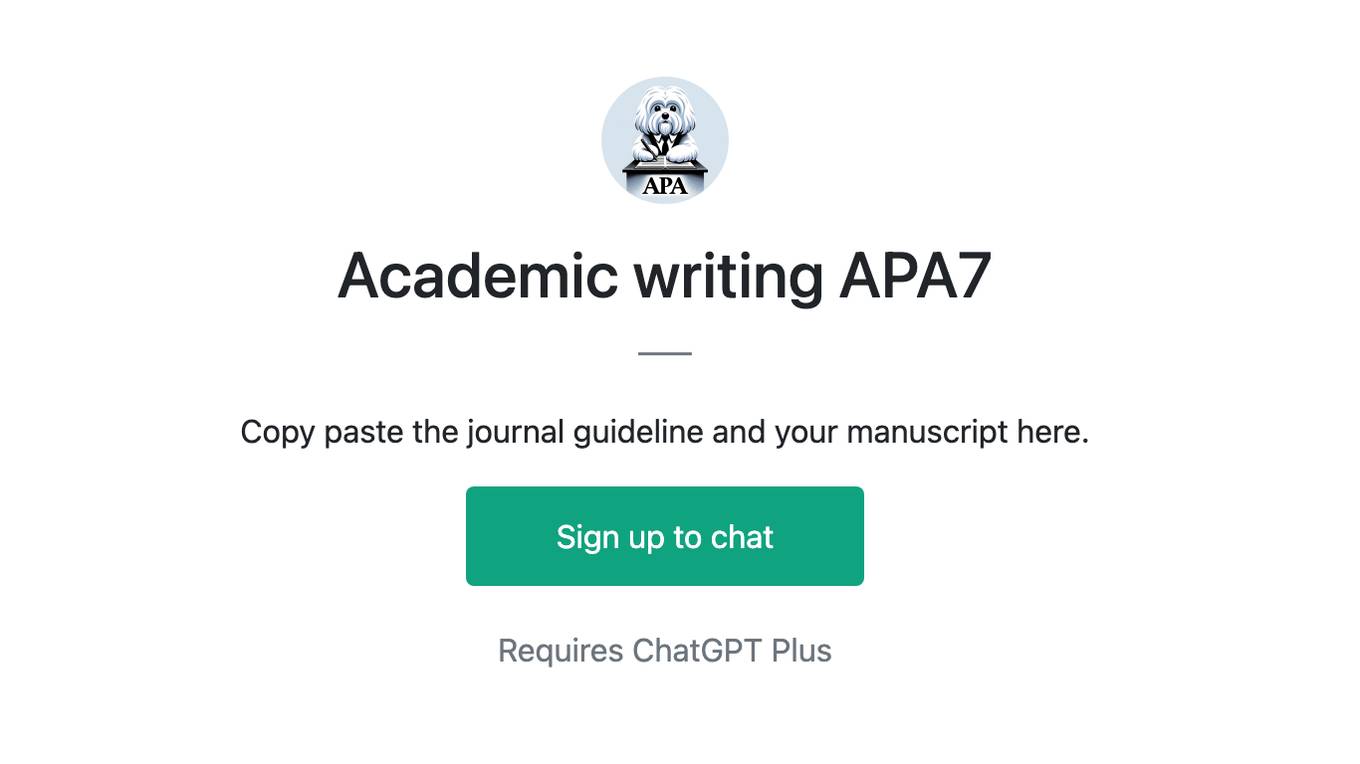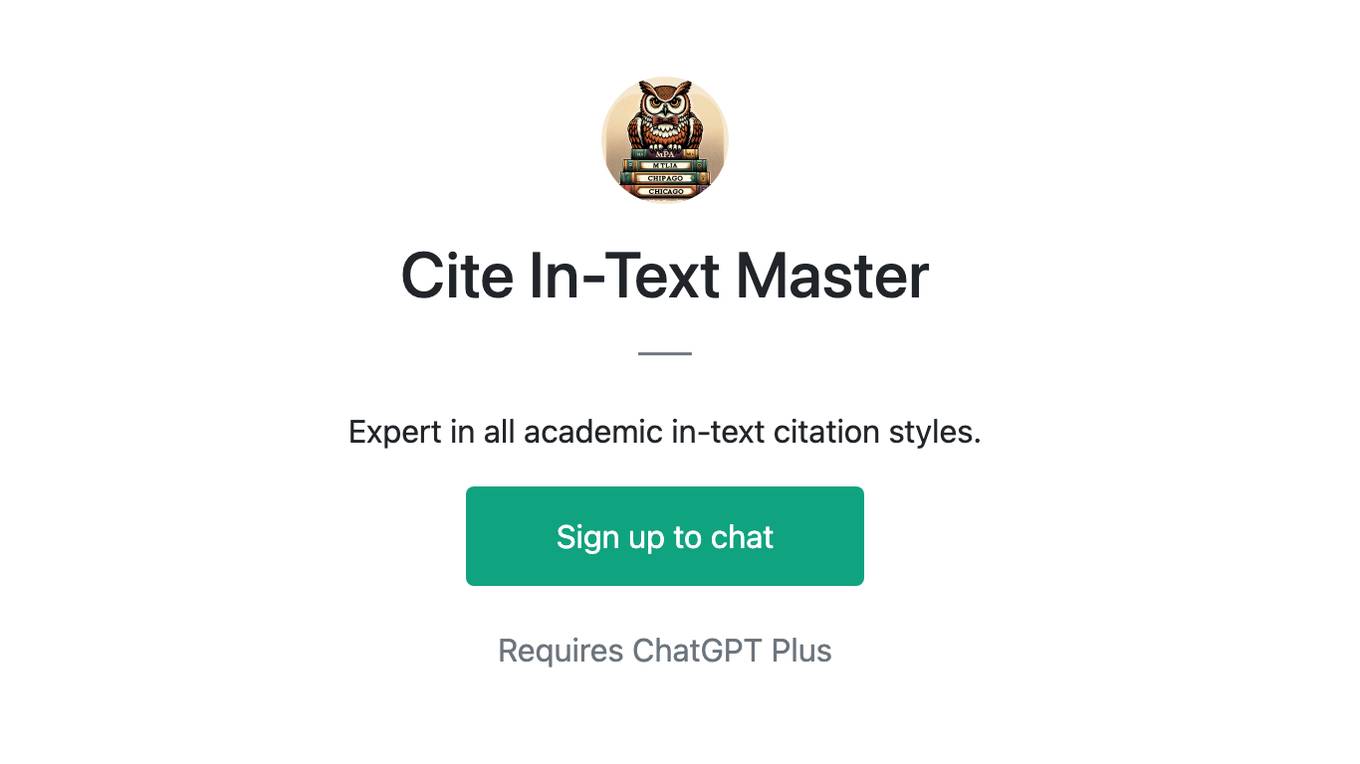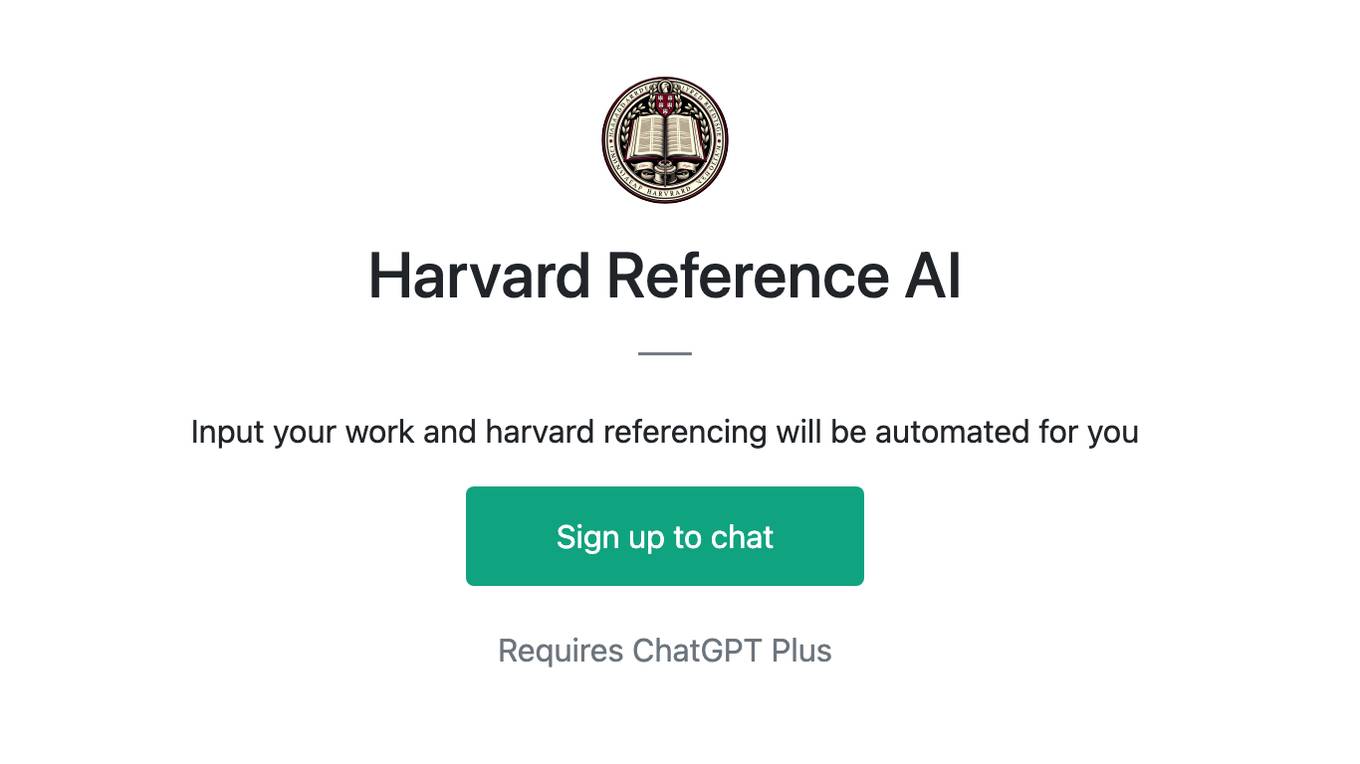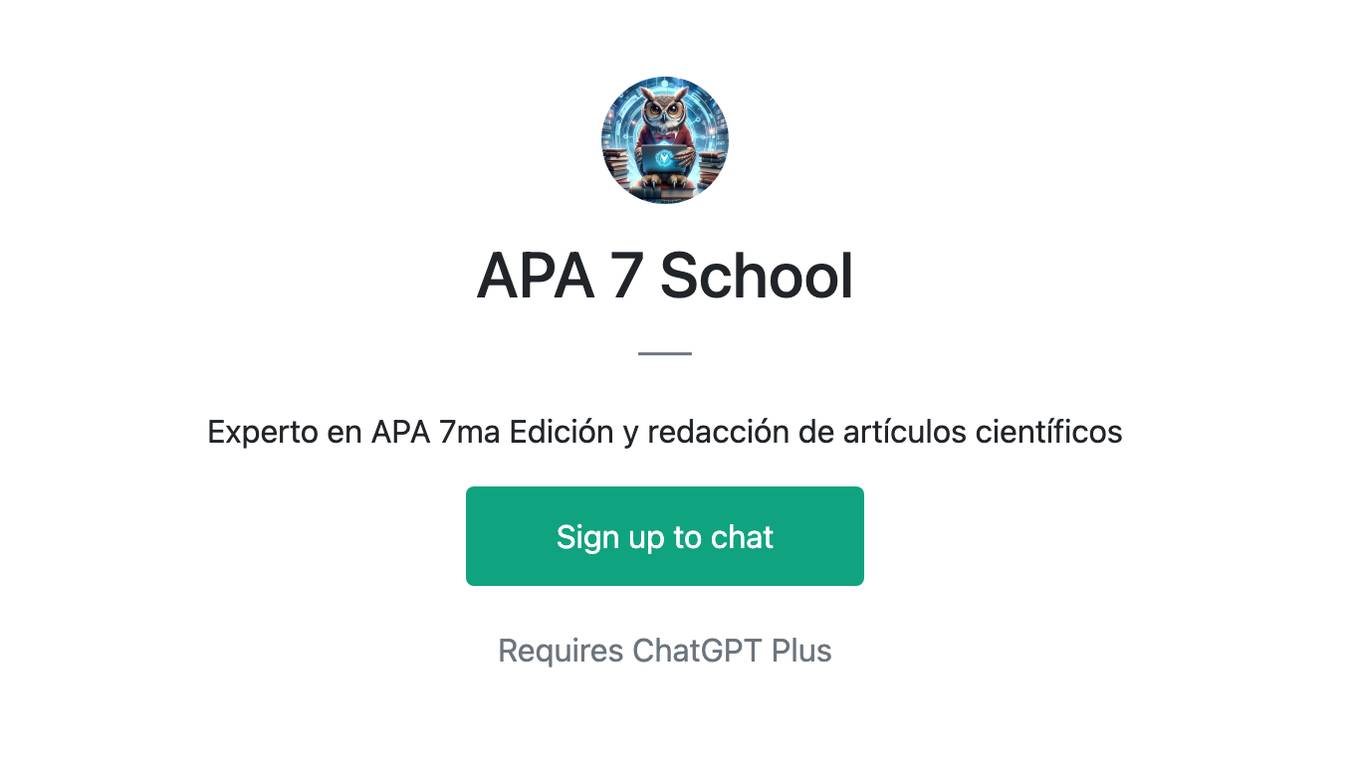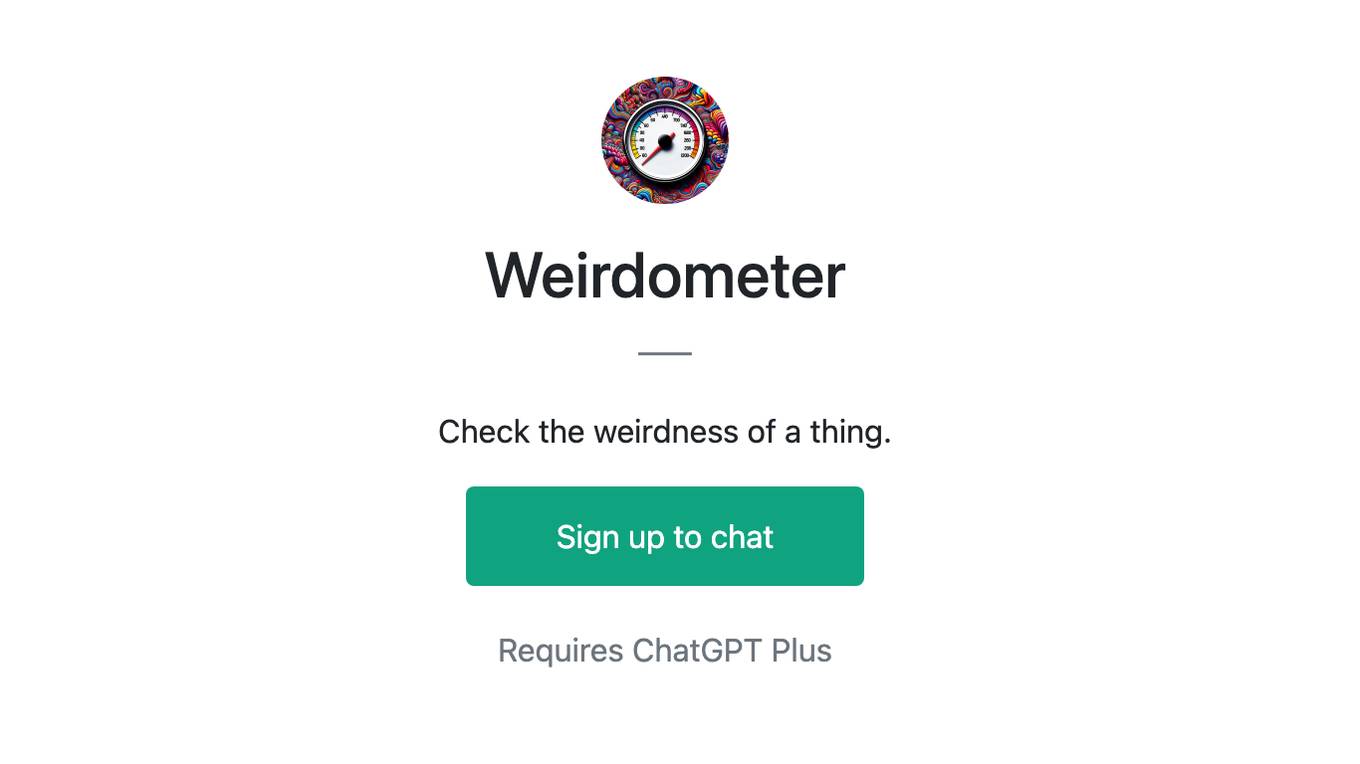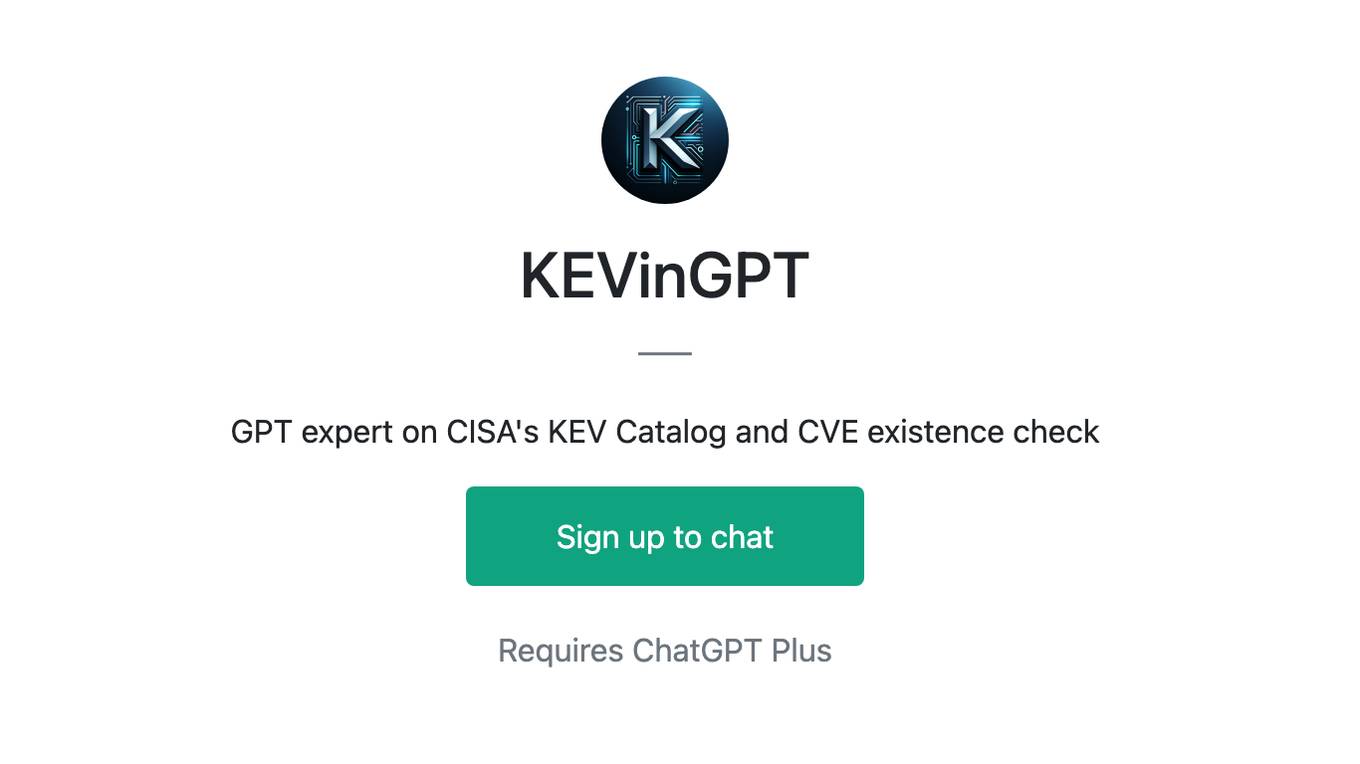Best AI tools for< Check Citations >
20 - AI tool Sites

WriterBuddy
WriterBuddy is an advanced AI writing assistant that streamlines academic workflow by helping users research, write, edit, and cite faster and smarter. It offers features such as paraphrasing, text summarization, plagiarism checking, grammar checking, and citation generation. WriterBuddy aims to enhance writing productivity, accuracy, and originality, catering to students, researchers, and professionals across various industries.
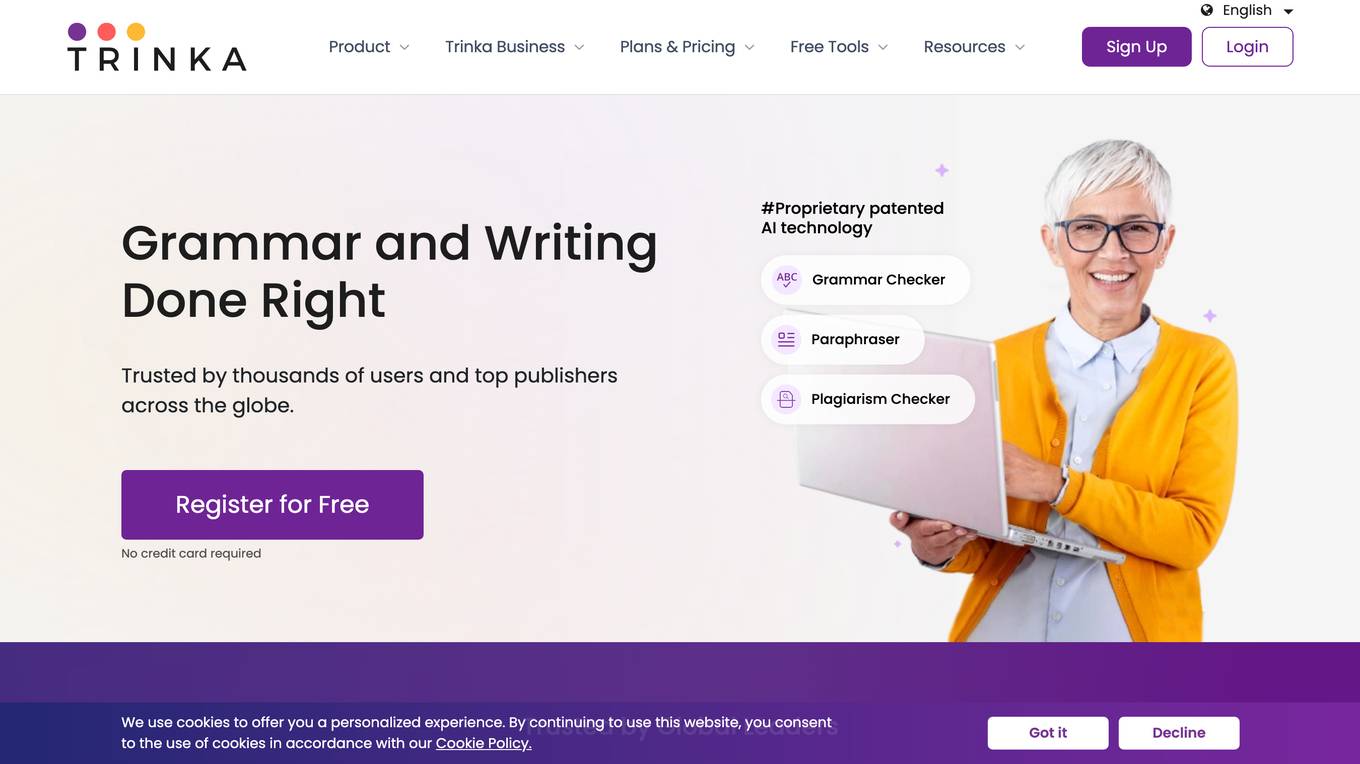
Trinka
Trinka is an AI-powered English grammar checker and language enhancement writing assistant designed for academic and technical writing. It corrects contextual spelling mistakes and advanced grammar errors by providing writing suggestions in real-time. Trinka helps professionals and academics ensure formal, concise, and engaging writing. Trinka's Enterprise solutions come with unlimited access and great customization options to all of Trinka's powerful capabilities.
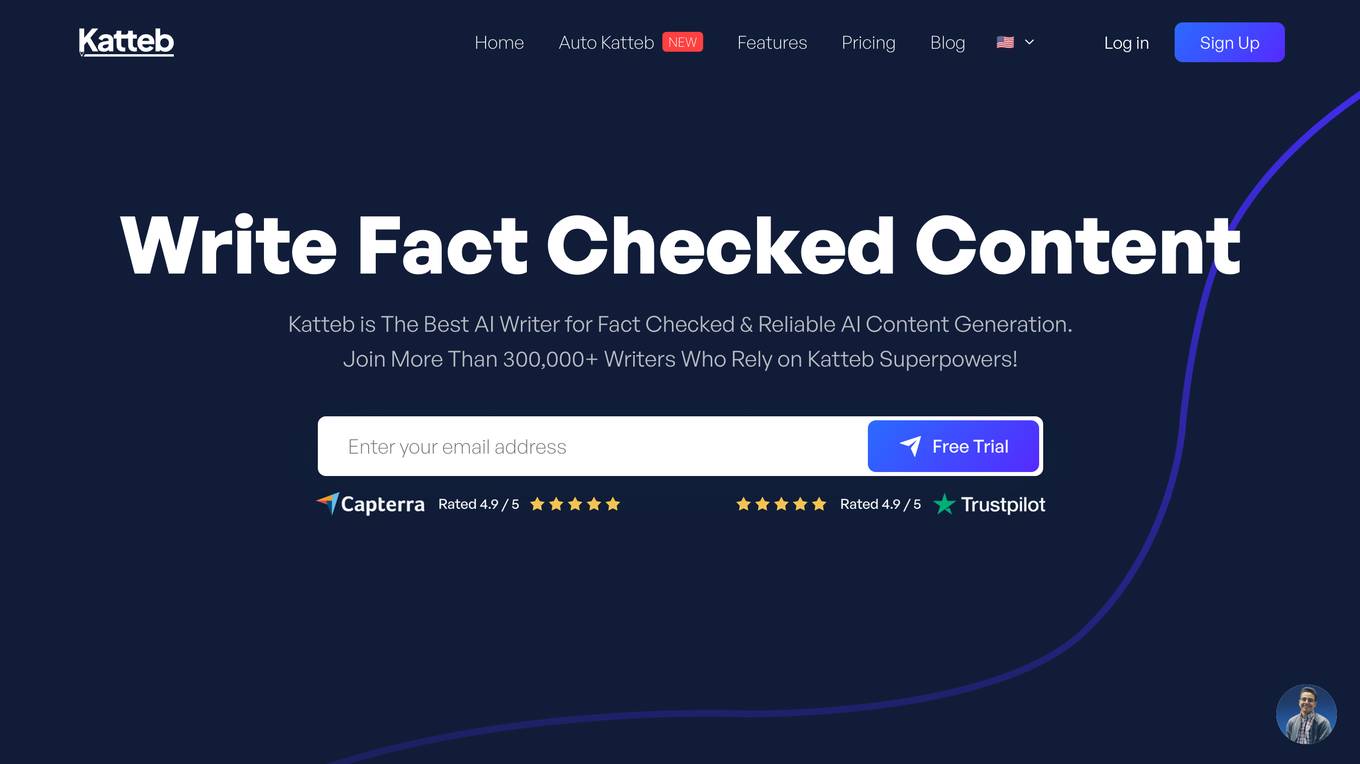
Katteb
Katteb is an AI-powered writing software that utilizes rigorous fact-checking techniques to deliver you content of the highest credibility. It ensures to provide you with reliable information supported by credible sources and in-text citations. By using Katteb, you can significantly enhance your credibility and trust score in search engines.

T-Checker
T-Checker is a plagiarism and AI report tool designed for students, researchers, and academic staff to scan for similarity in their work, fix citations, and receive AI writing reports instantly. It offers fast, private, and secure services with features like pre-checking similarity, fixing citations, and reducing accidental overlap. T-Checker ensures privacy by not storing files in a repository and provides bank-level security with 256-bit SSL encryption. The tool offers simple and transparent pricing plans to fit various research needs, with options for monthly or yearly subscriptions.
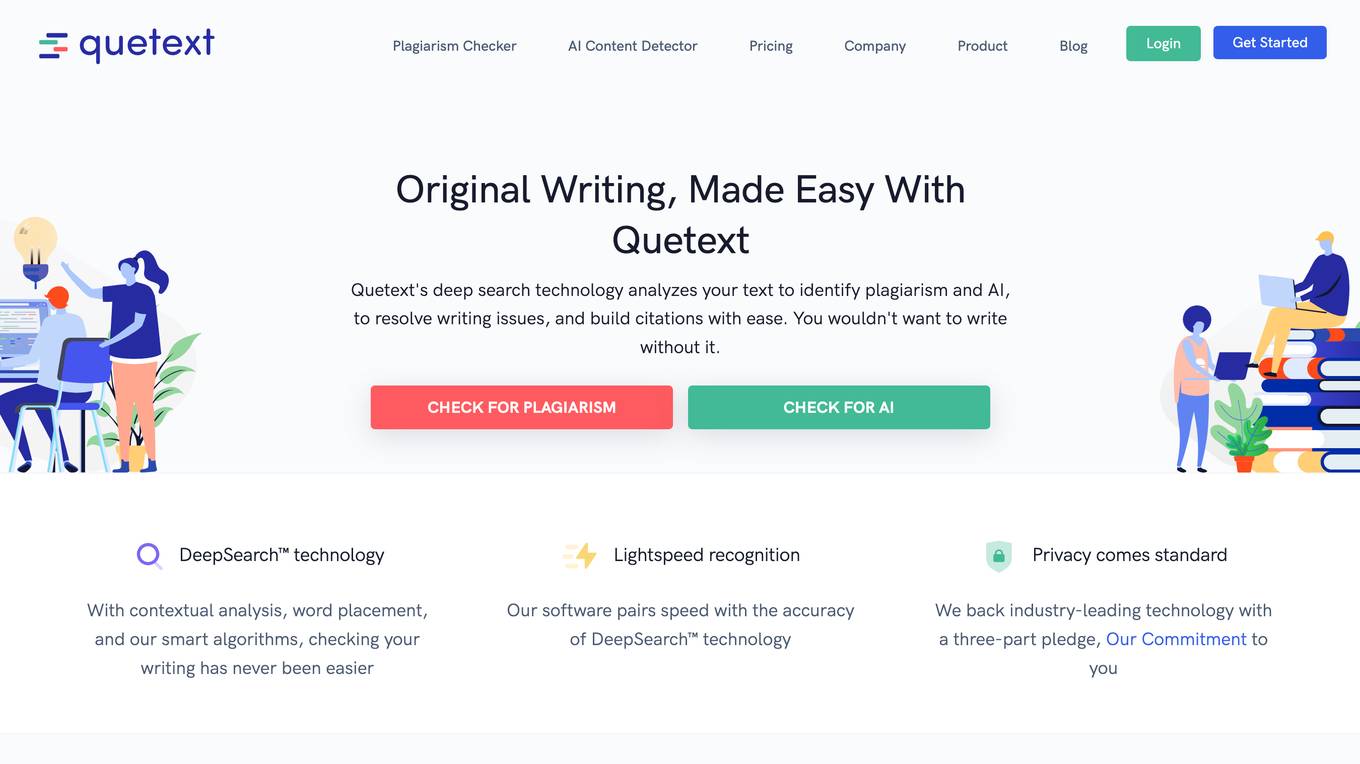
Quetext
Quetext is a plagiarism checker and AI content detector that helps students, teachers, and professionals identify potential plagiarism and AI in their work. With its deep search technology, contextual analysis, and smart algorithms, Quetext makes checking writing easier and more accurate. Quetext also offers a variety of features such as bulk uploads, source exclusion, enhanced citation generator, grammar & spell check, and Deep Search. With its rich and intuitive feedback, Quetext helps users find plagiarism and AI with less stress.

Scribbr
Scribbr is an AI-powered academic writing tool that offers a range of services to help students achieve academic success. It provides proofreading and editing services, plagiarism checking, citation generation, AI content detection, and a knowledge base with resources for academic writing. Scribbr aims to support students on their journey to become better academic writers by providing the right tools for success.
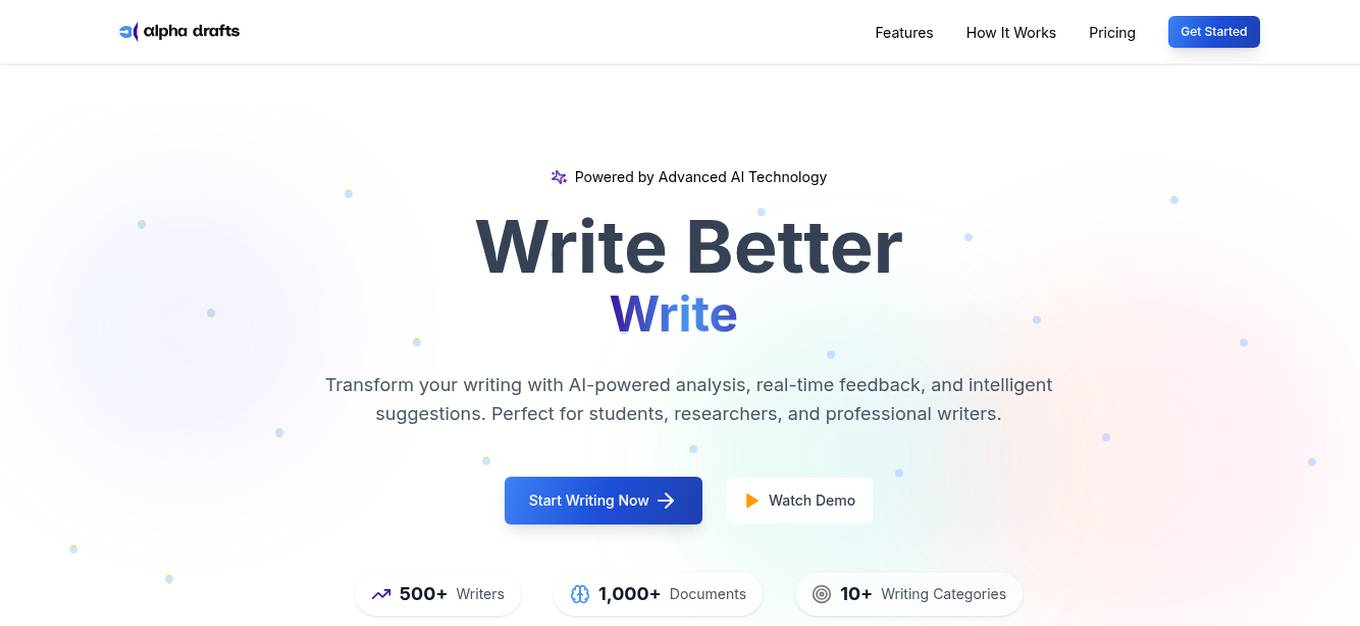
AlphaDrafts
AlphaDrafts is an AI-powered writing platform that offers advanced analysis, real-time feedback, and intelligent suggestions to enhance writing skills. It caters to students, researchers, and professional writers by providing a complete writing workspace with features like AI-powered analysis, real-time suggestions, citation management, grammar checking, and style and tone suggestions. Users can transform their writing with the help of AlphaDrafts' AI technology, improving grammar, structure, and overall quality of their content.
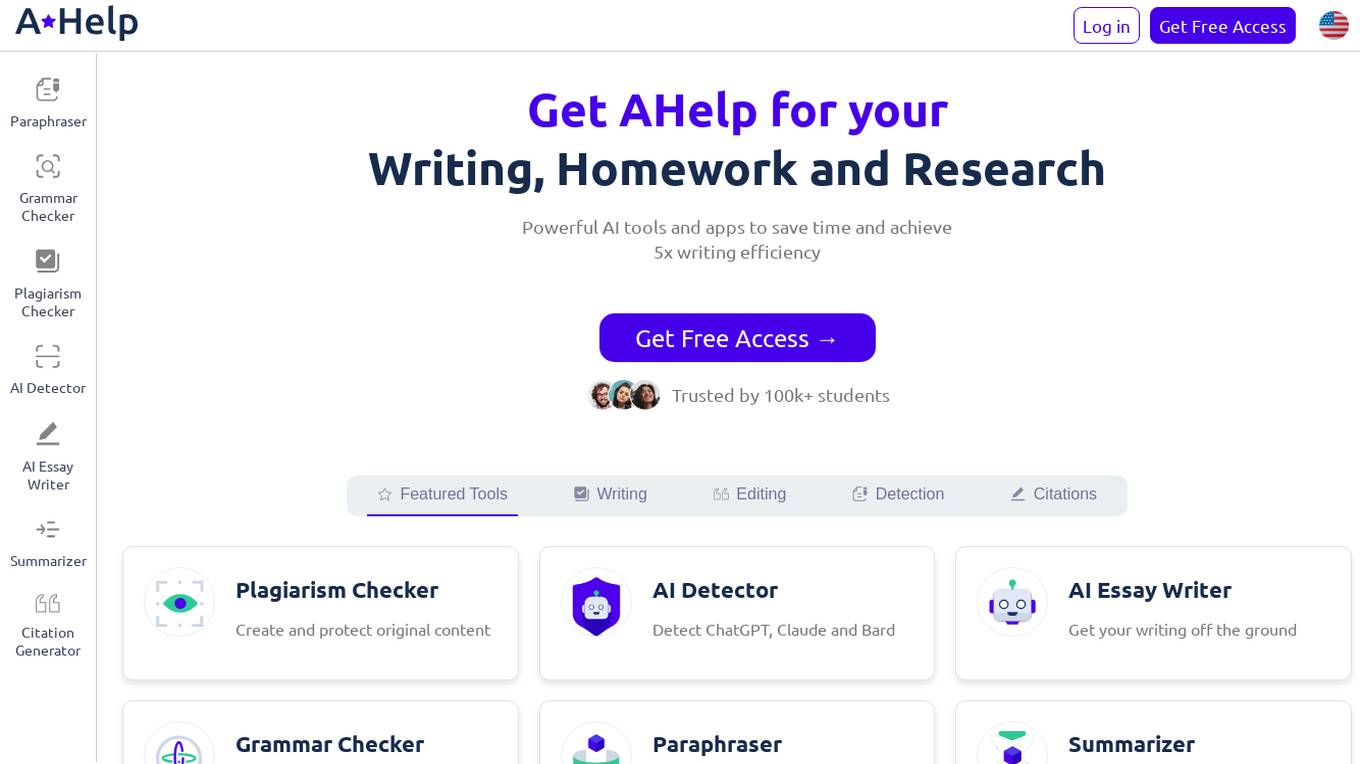
AHelp
AHelp is the ultimate hub of educational and AI writing tools designed to assist students in improving their writing skills, enhancing efficiency, and achieving academic success. The platform offers a variety of powerful AI tools and applications such as Paraphraser, Grammar Checker, Plagiarism Checker, AI Detector, AI Essay Writer, Summarizer, and Citation Generator. AHelp is a one-stop solution for better writing, providing confidentiality, privacy, and a money-back guarantee. With a mission to empower students from top universities, AHelp ensures 100% compliance with academic standards, a significant improvement in writing quality, and a faster writing and research process.
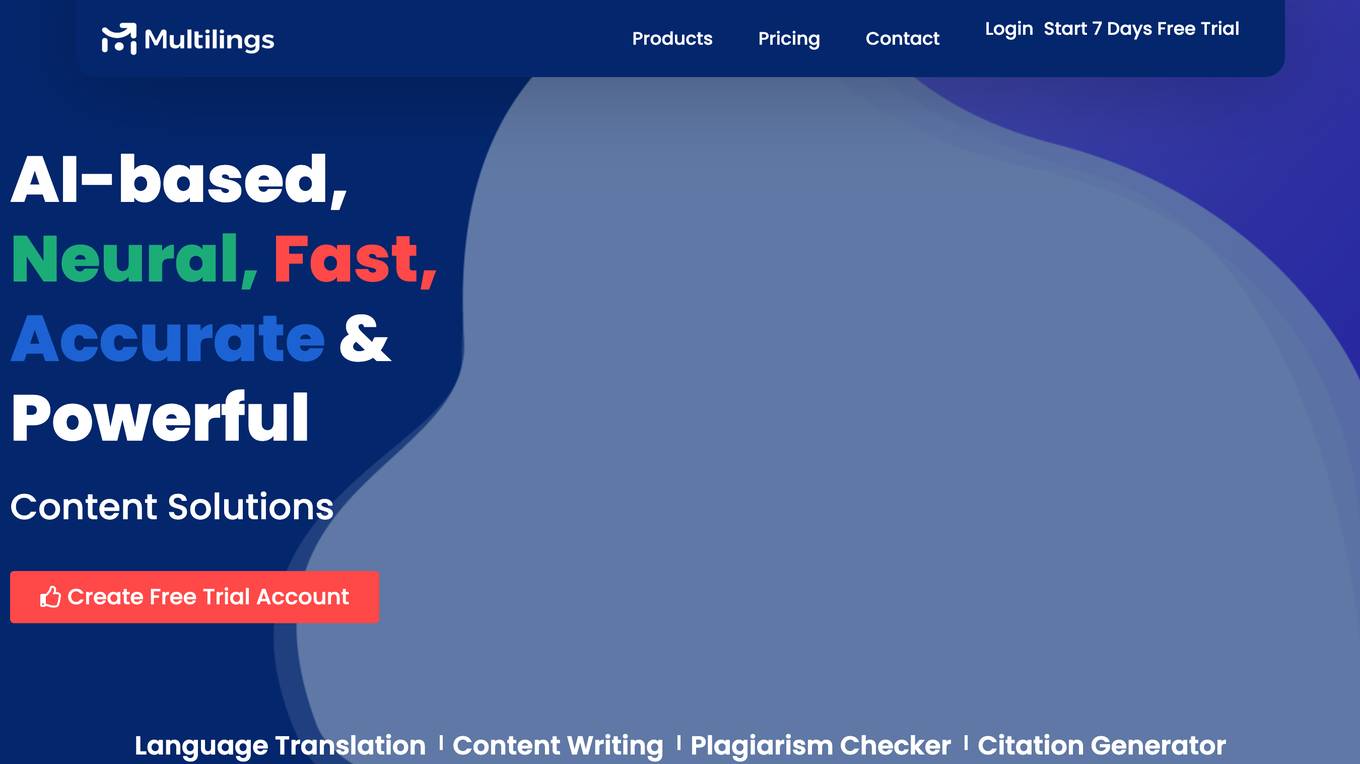
Multilings
Multilings is a neural AI-based machine learning service that provides human-like output for text translation, content writing, plagiarism detection, and voice translation. It is designed for marketers, content writers, researchers, students, and anyone who needs to create high-quality content quickly and efficiently. Multilings offers a range of tools, including a writing assistant, language translator, plagiarism checker, citation generator, and AI chatbot. These tools are powered by advanced machine learning and artificial intelligence algorithms that can generate natural-sounding text, translate languages accurately, detect plagiarism effectively, and provide helpful writing suggestions.
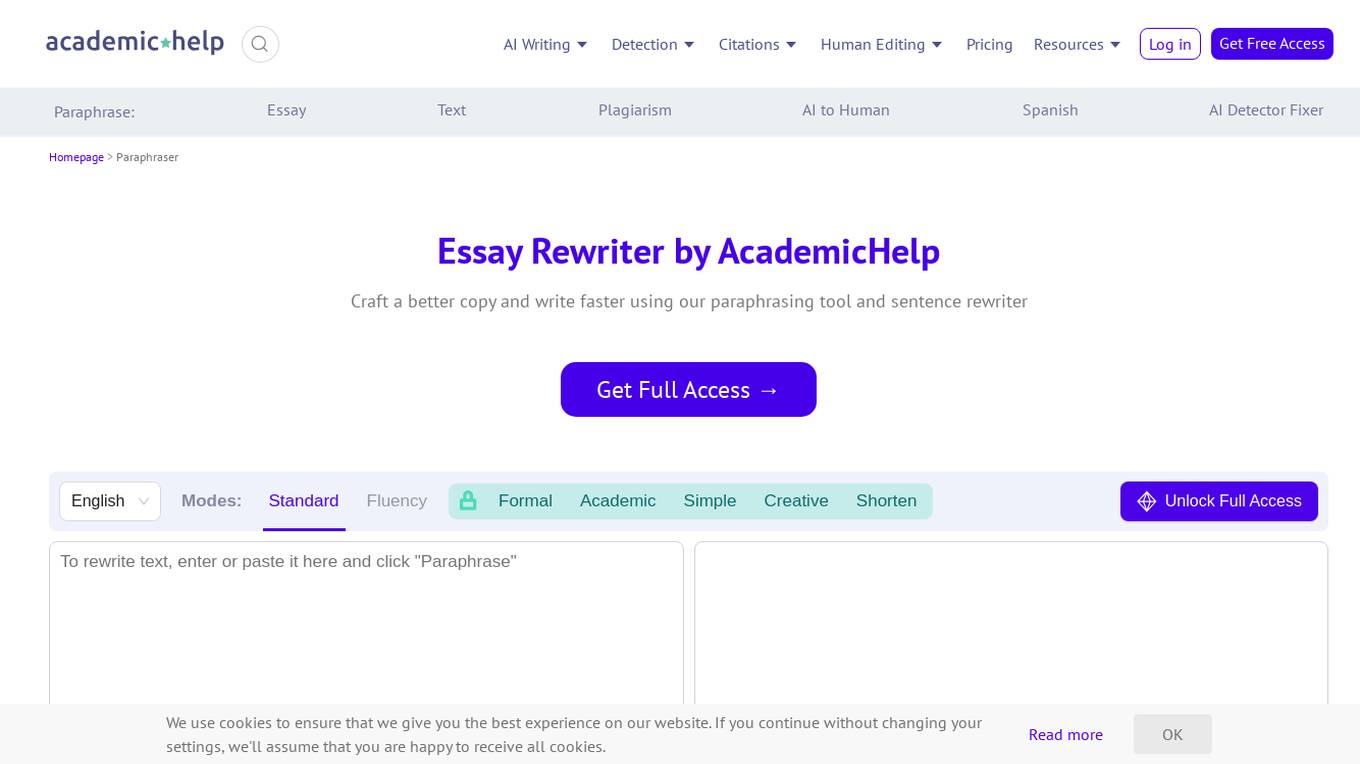
Essay Rewriter
AcademicHelp's Essay Rewriter is a free online paraphrasing tool that uses AI to help you rewrite your essays, articles, and other written content. It offers seven different paraphrasing modes to choose from, so you can customize the output to your specific needs. The tool is easy to use, simply paste your text into the box and click the "Paraphrase" button. The tool will then generate a new version of your text that is free of plagiarism and has a high readability score. You can also use the tool to check for plagiarism, summarize text, and generate citations.
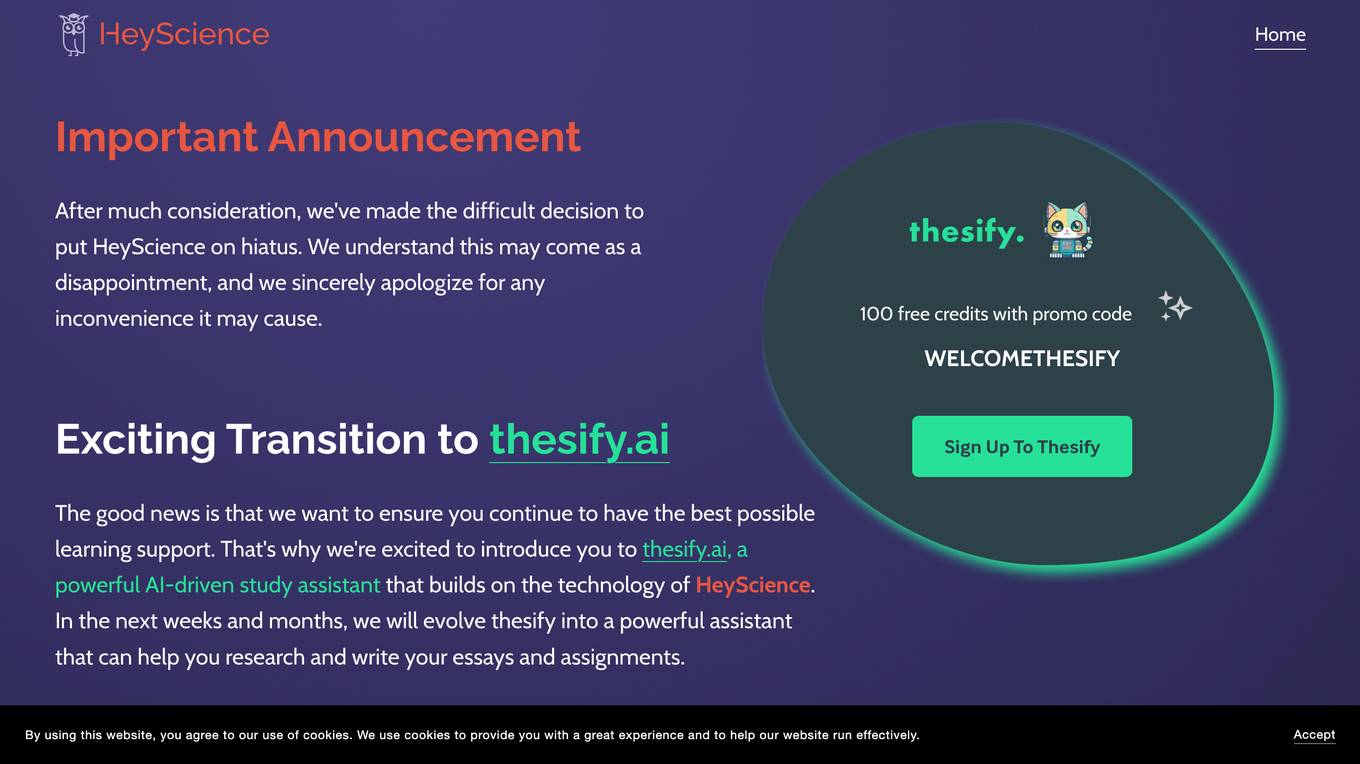
HeyScience
HeyScience is a personal AI assistant that helps users with research and writing tasks. It is powered by thesify.ai, a powerful AI-driven study assistant. HeyScience offers a variety of features, including the ability to generate citations, create outlines, and check for plagiarism. It also provides access to a vast database of academic resources.
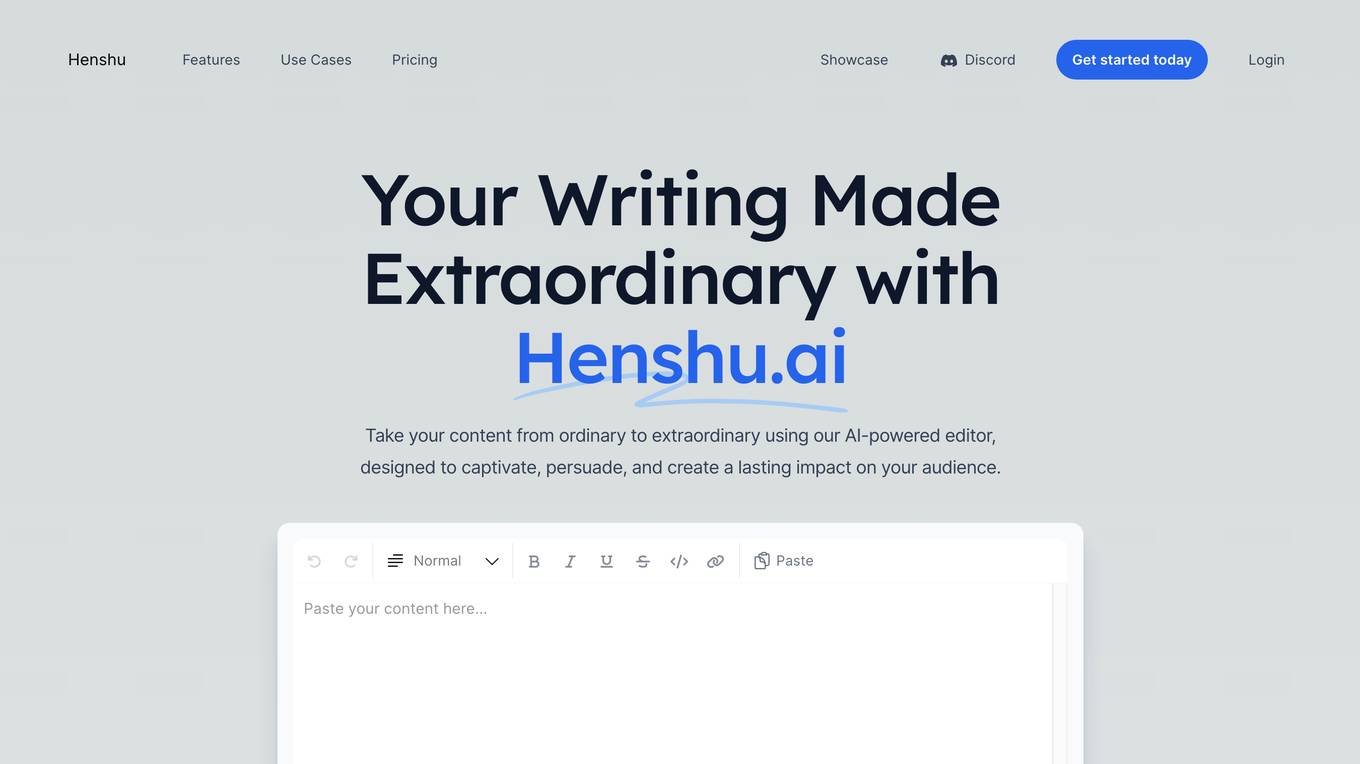
Henshu
Henshu is an AI-powered writing assistant that helps users improve their writing style, grammar, and tone. It offers a variety of features, including the ability to check for plagiarism, generate citations, and translate text into different languages. Henshu is designed to help users create clear, concise, and engaging content.
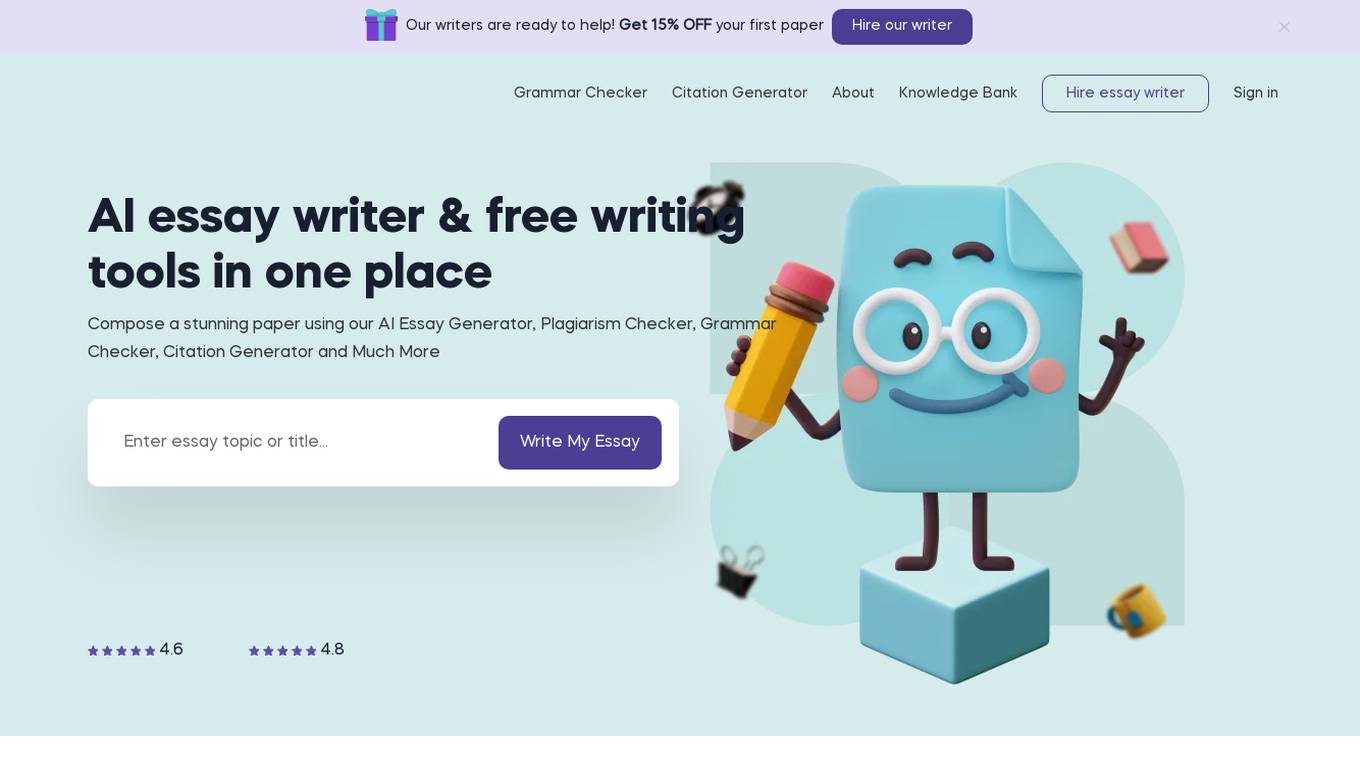
PaperTyper
PaperTyper is an online writing platform that offers a range of free tools for students to use in their academic writing. These tools include an AI essay writer, plagiarism checker, grammar checker, and citation generator. PaperTyper also offers a paid service where students can hire professional essay writers to write their papers for them.
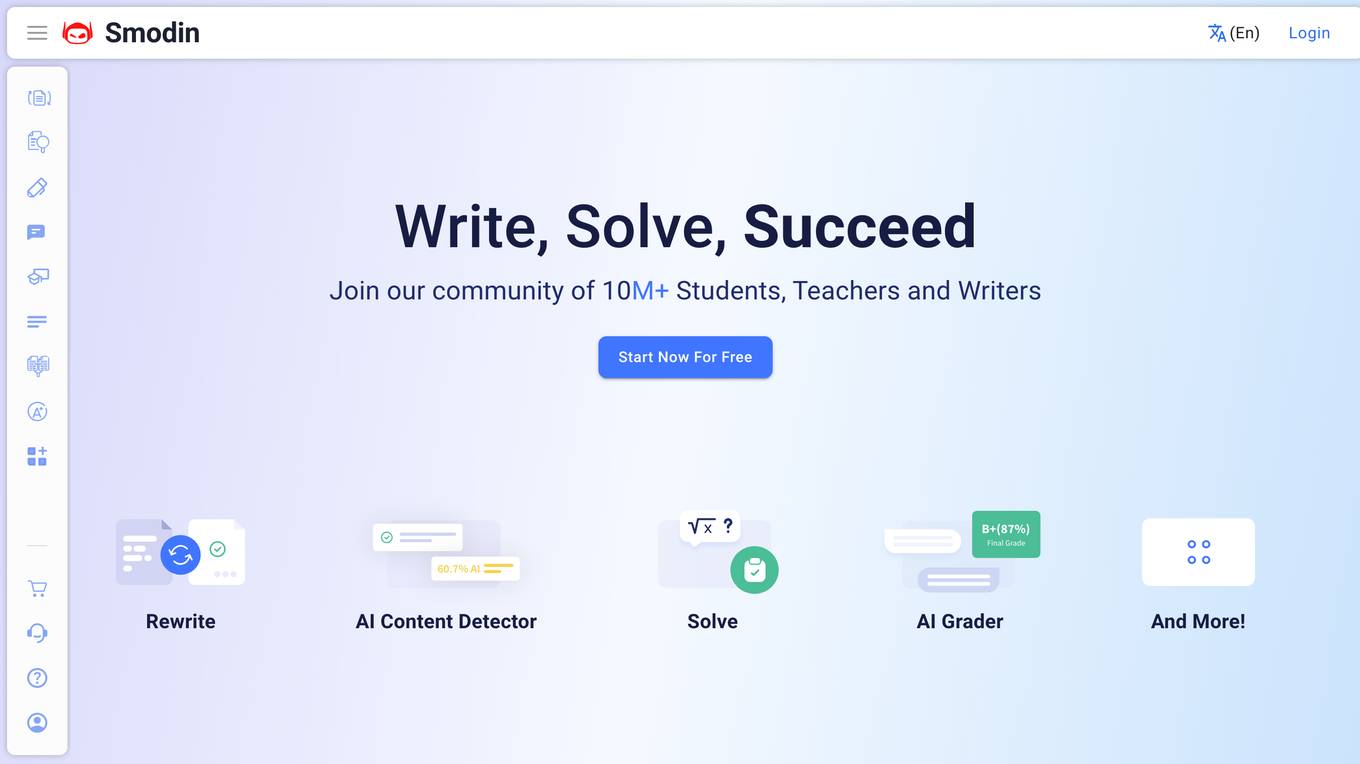
Smodin
Smodin is a multi-lingual writing assistance tool that provides a range of features to help users with their research and content creation needs. It offers AI-powered research tools, automatic reference generation, plagiarism detection, and instant feedback on writing. Smodin also includes a chat feature that allows users to ask questions and get answers on any subject. The tool is designed to help users write high-quality, structured text quickly and easily.
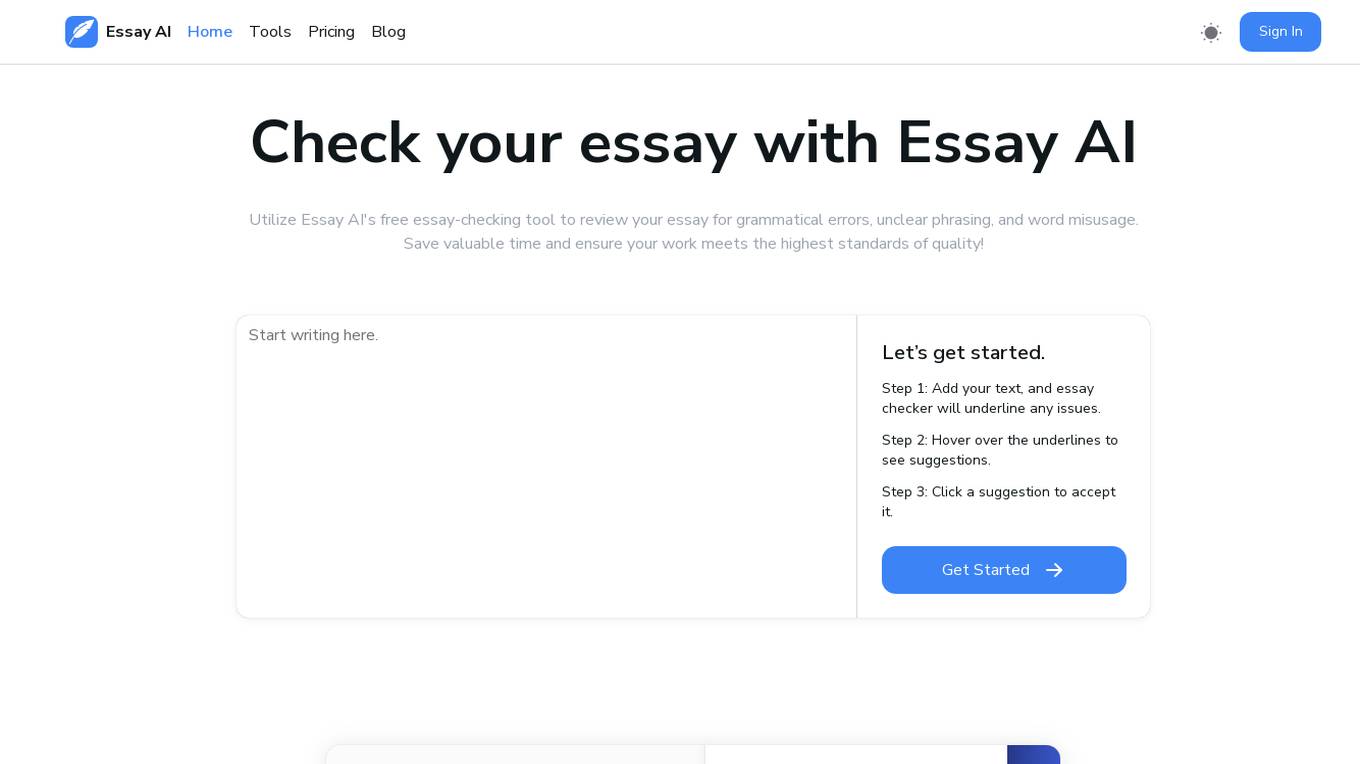
Essay AI
Essay AI is a free essay-checking tool designed to help users review their essays for grammatical errors, unclear phrasing, and word misusage. It offers features such as AI autocomplete, conversation engagement, source citation, paraphrasing, rewriting, and outline building. The tool aims to save users valuable time and ensure their work meets high-quality standards. Trusted by top universities, Essay AI streamlines the essay writing process and provides instant feedback to improve writing skills.
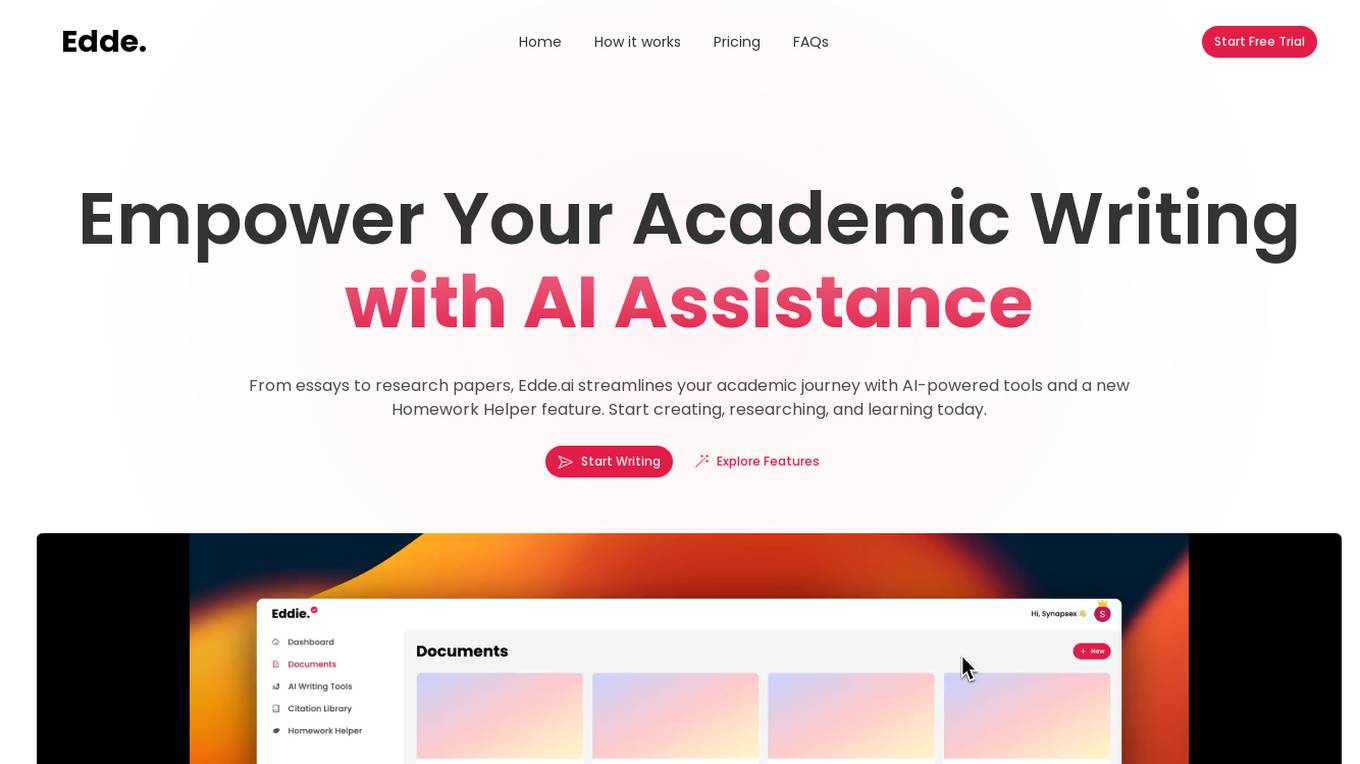
Edde.ai
Edde.ai is an AI-powered academic writing assistant designed to streamline the academic journey of students and researchers. It offers a range of tools such as real-time suggestions, grammar checks, and stylistic improvements to enhance writing quality. Additionally, Edde.ai provides features like title and outline generation, research helper, citation manager, subject guides, and question solver to simplify the research process. With transparent pricing and a user-friendly interface, Edde.ai aims to empower users in creating high-quality academic content.
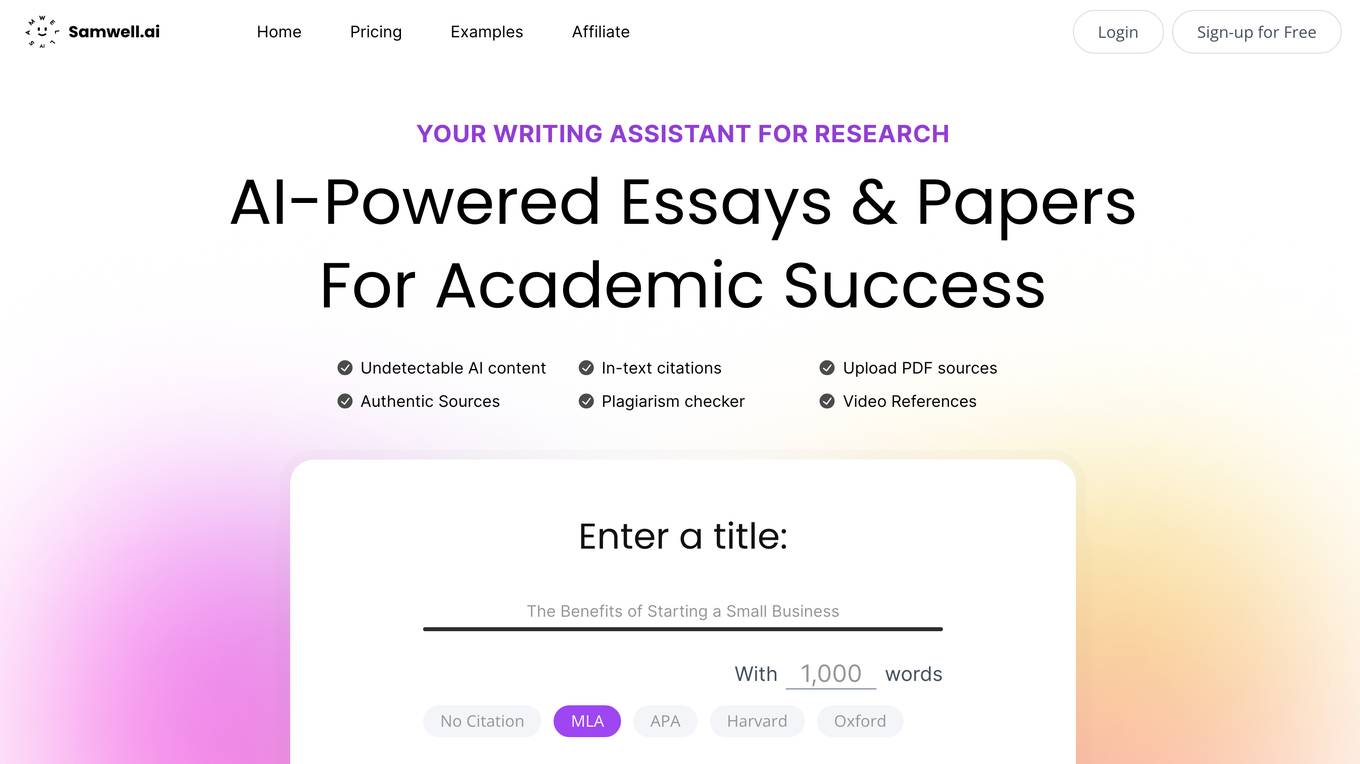
Samwell AI
Samwell AI is an AI-powered writing assistant that helps students and professionals write essays, research papers, and other academic content. It offers a variety of features, including a guided essay writing tool, in-text citation generation, plagiarism checking, and access to a vast database of academic sources. Samwell AI is designed to make the writing process easier, faster, and more efficient.
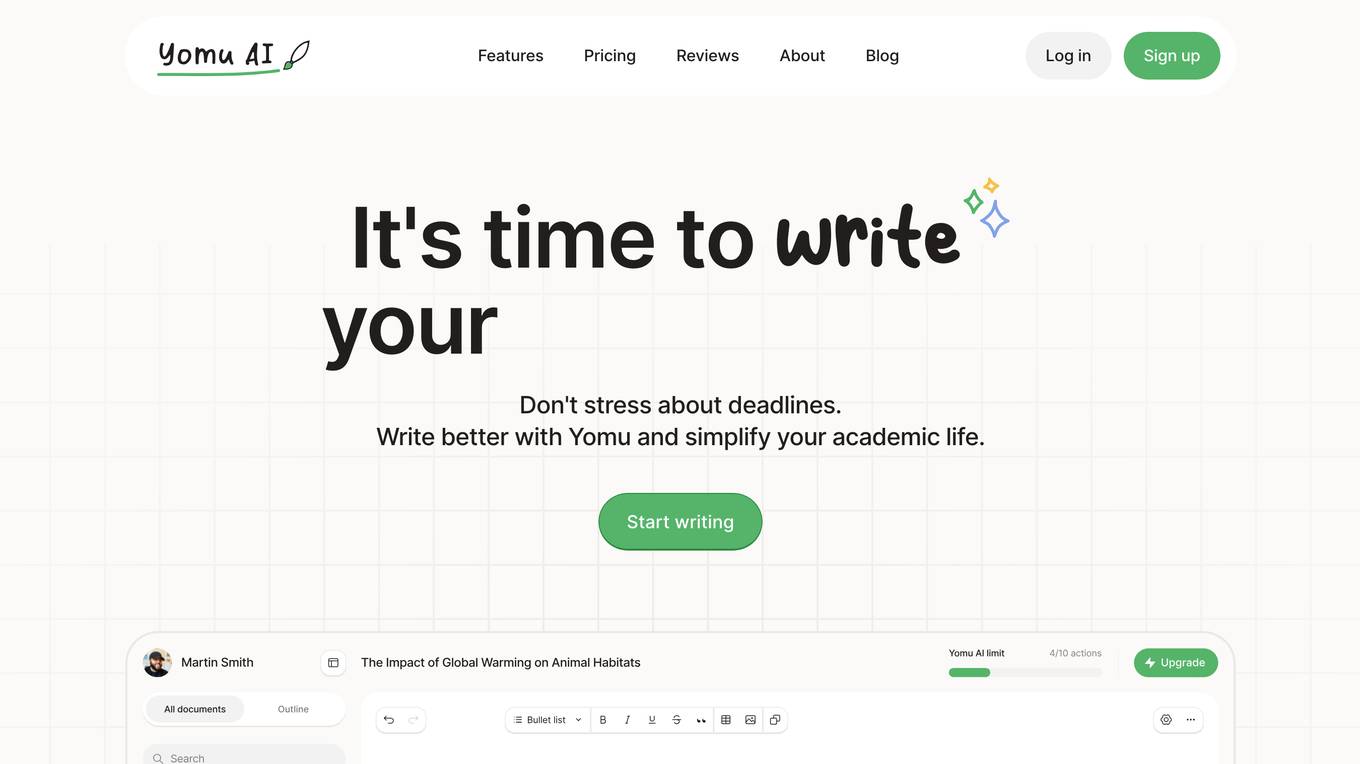
Yomu AI
Yomu is an AI-powered writing assistant designed to help users with academic writing tasks such as writing essays and papers. It offers features like an intelligent Document Assistant, AI autocomplete, paper editing tools, citation tool, plagiarism checker, and more. Yomu aims to simplify the academic writing process by providing AI-powered assistance to enhance writing quality and originality.

Yomu AI
Yomu AI is an AI-powered writing assistant designed to help users write better essays, papers, and academic writing. It offers features such as an intelligent Document Assistant, AI autocomplete, paper editing tools, citation tool, plagiarism checker, and more. Yomu aims to simplify academic writing, enhance productivity, and ensure originality and authenticity in the users' work.
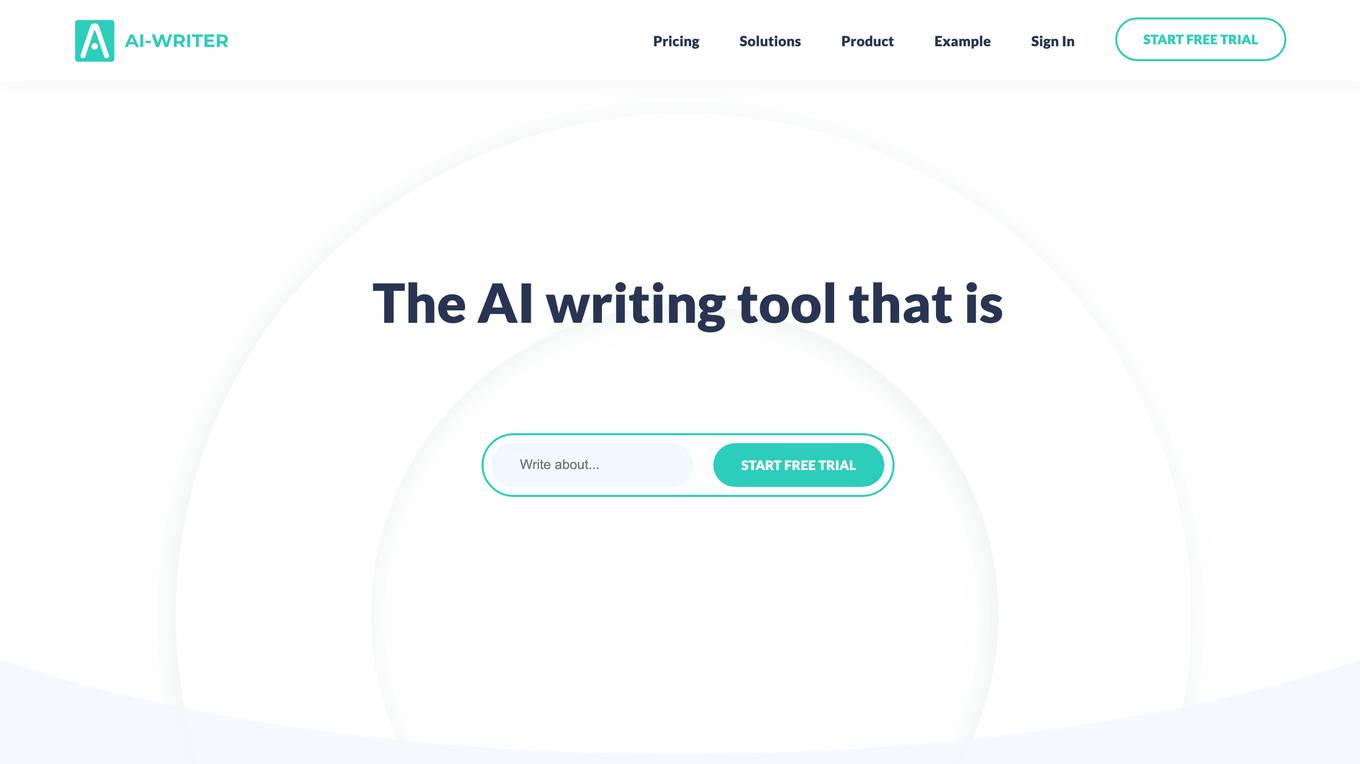
AI-Writer
AI-Writer is an AI-powered text generator that helps users create unique, high-quality content quickly and efficiently. It offers a range of features, including keyword optimization, plagiarism detection, and citation generation, making it an ideal tool for marketers, writers, and students. With its user-friendly interface and comprehensive capabilities, AI-Writer empowers users to streamline their content creation process and achieve better results.
0 - Open Source AI Tools
20 - OpenAI Gpts
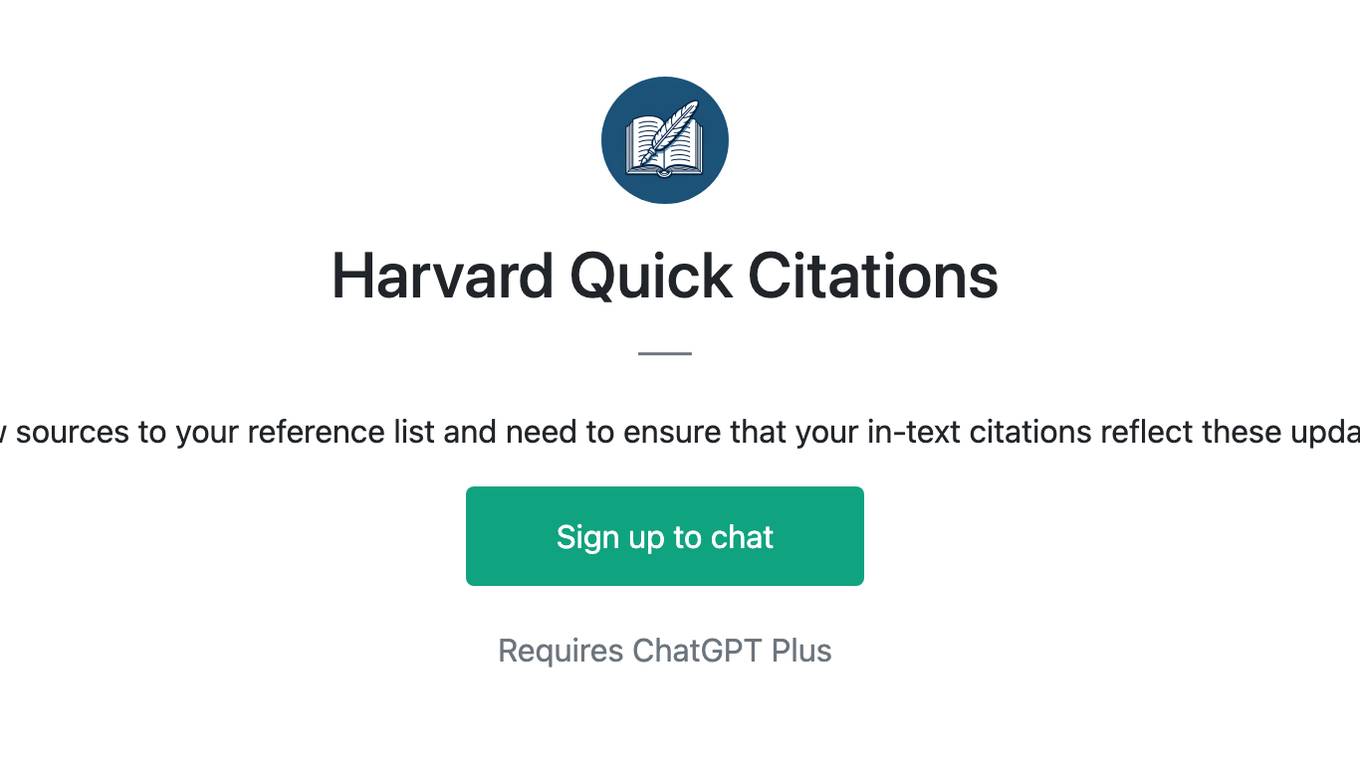
Harvard Quick Citations
This tool is only useful if you have added new sources to your reference list and need to ensure that your in-text citations reflect these updates. Paste your essay below to get started.
Writing Metier Footnote Assistant
The Writing Metier Footnote Assistant is a specialized GPT model designed to help students efficiently create, format, and verify footnotes for their academic papers.
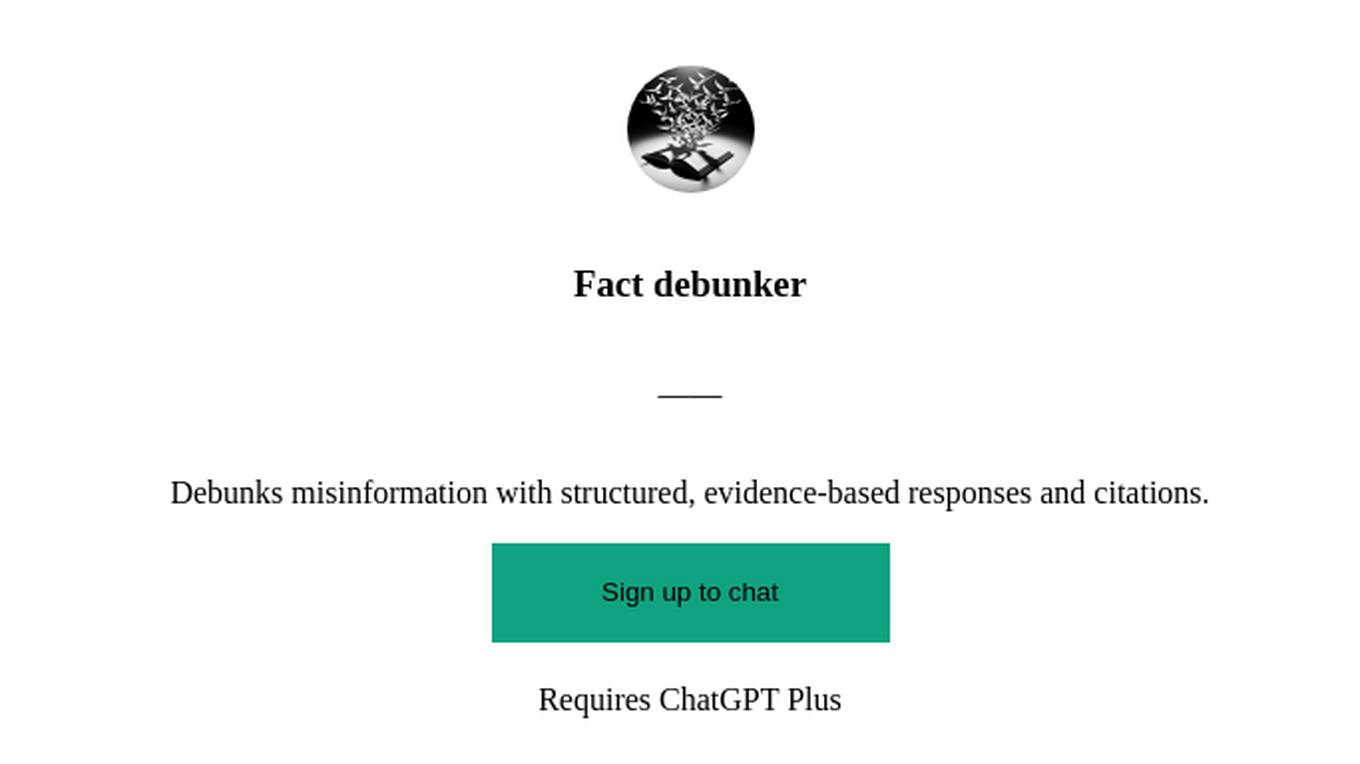
Fact debunker
Debunks misinformation with structured, evidence-based responses and citations.
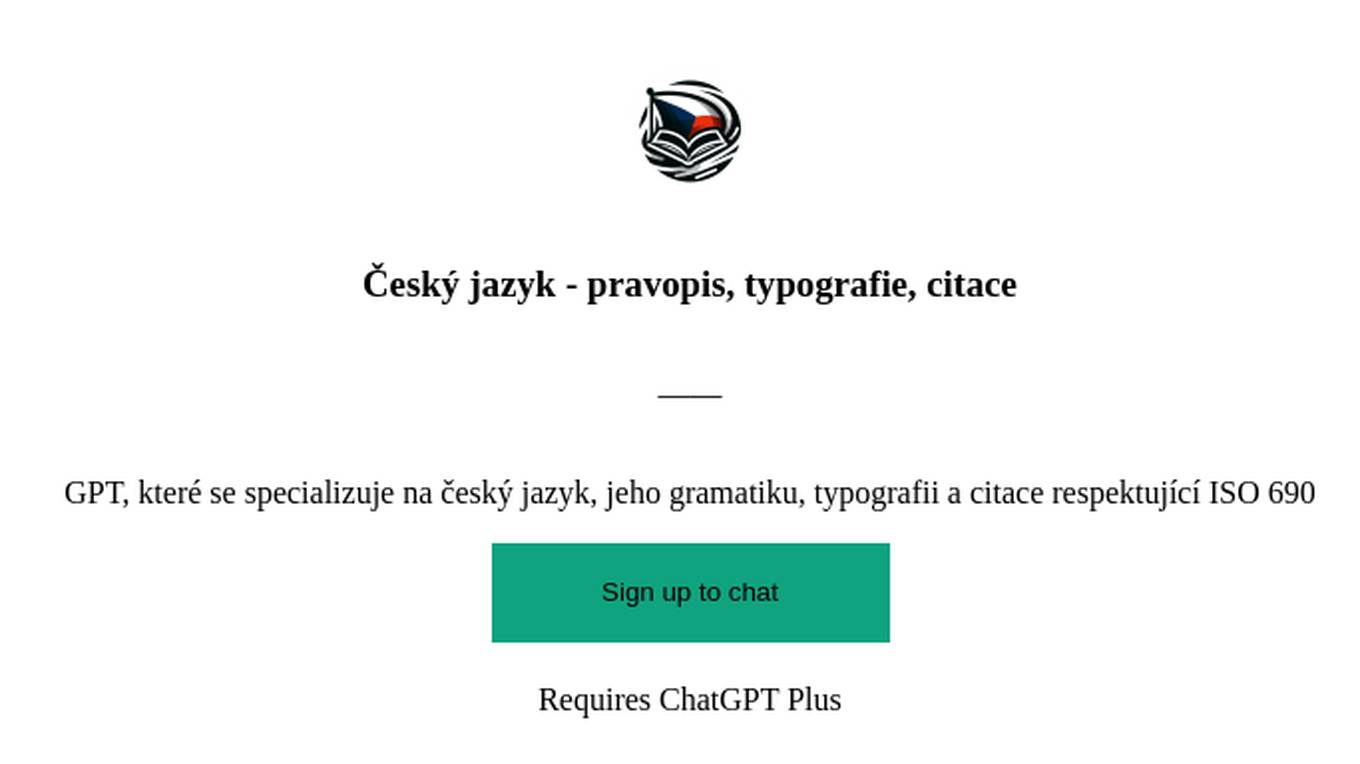
Český jazyk - pravopis, typografie, citace
GPT, které se specializuje na český jazyk, jeho gramatiku, typografii a citace respektující ISO 690
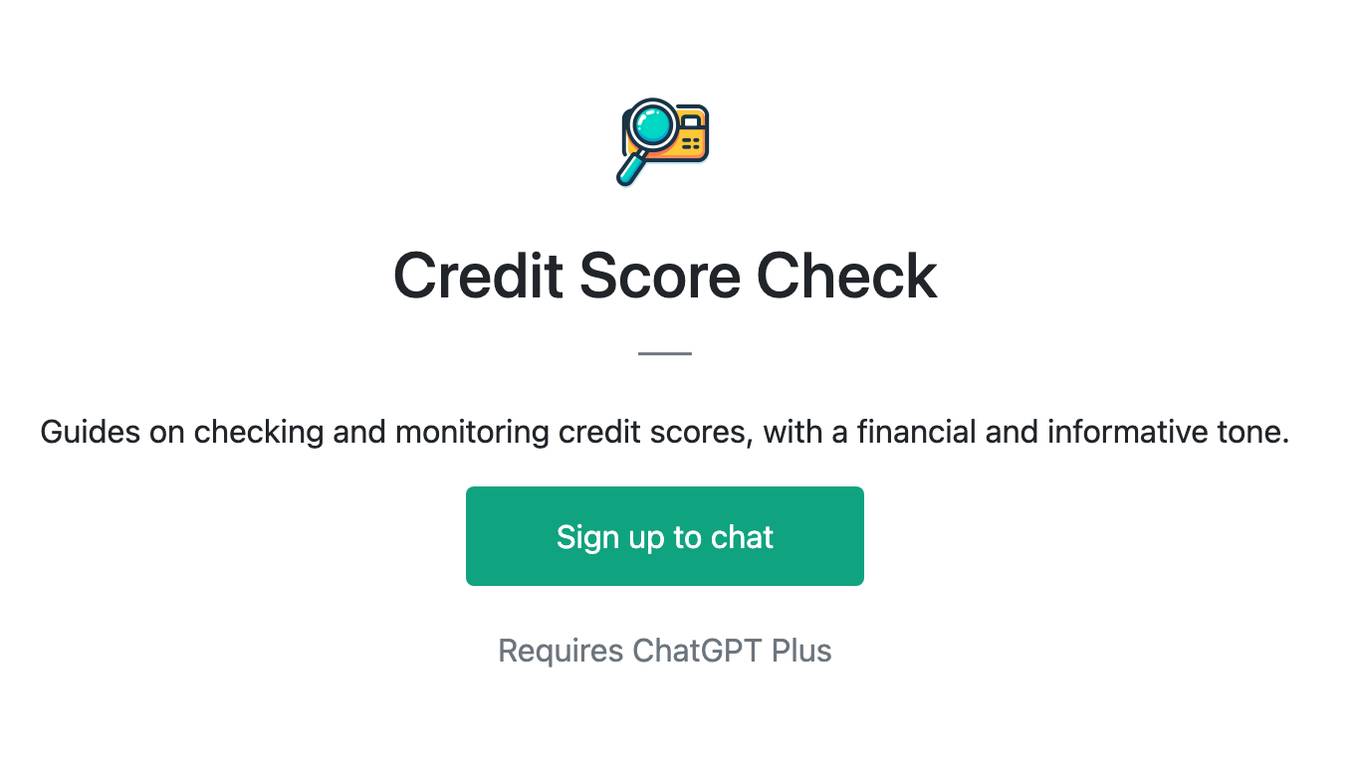
Credit Score Check
Guides on checking and monitoring credit scores, with a financial and informative tone.
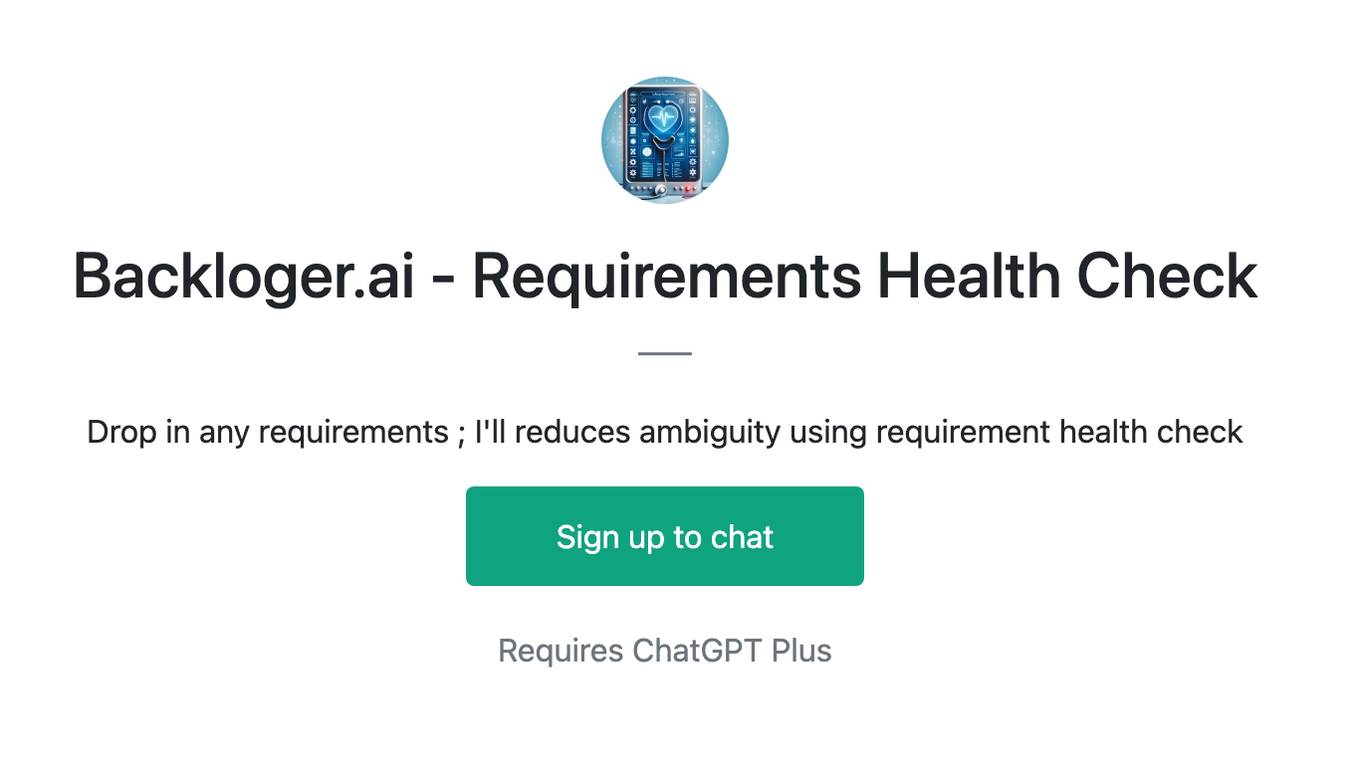
Backloger.ai - Requirements Health Check
Drop in any requirements ; I'll reduces ambiguity using requirement health check

Website Worth Calculator - Check Website Value
Calculate website worth by analyzing monthly revenue, using industry-standard valuation methods to provide approximate, informative value estimates.
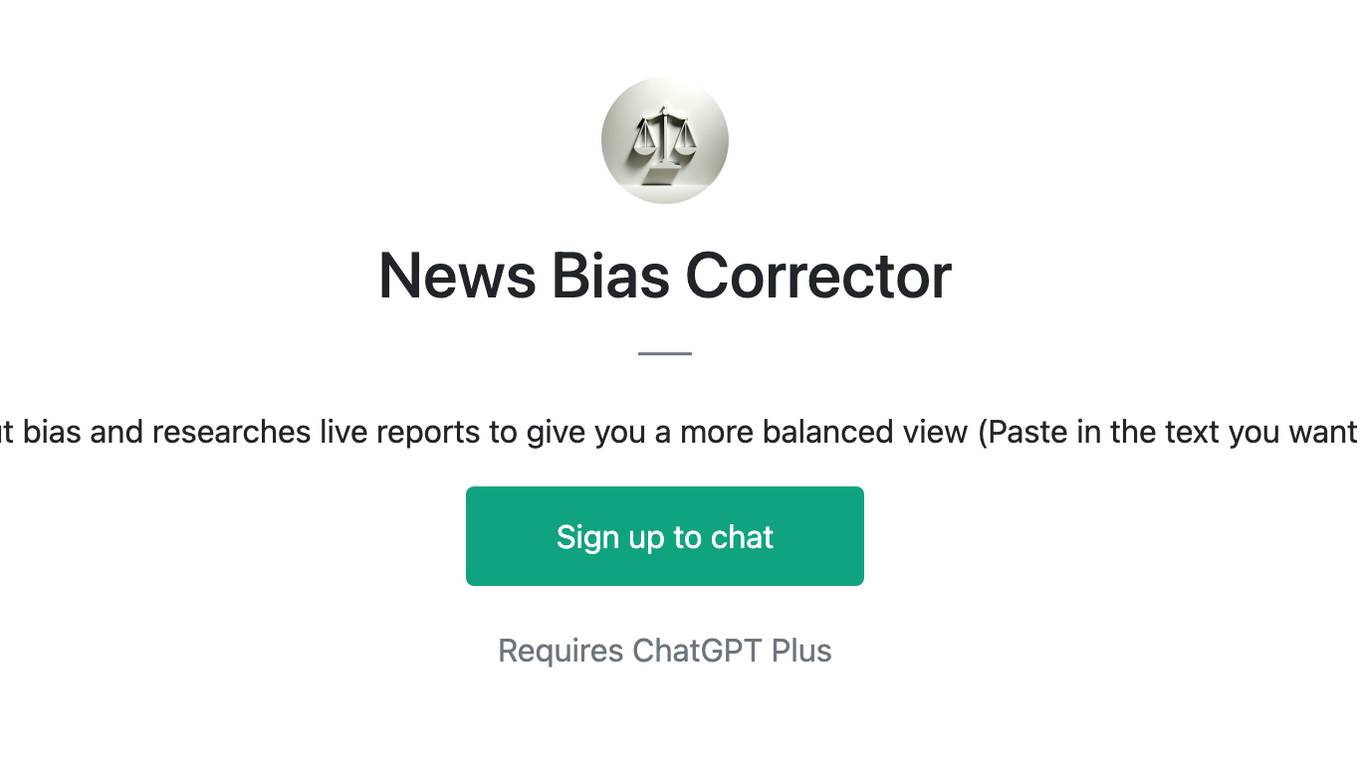
News Bias Corrector
Balances out bias and researches live reports to give you a more balanced view (Paste in the text you want to check)
